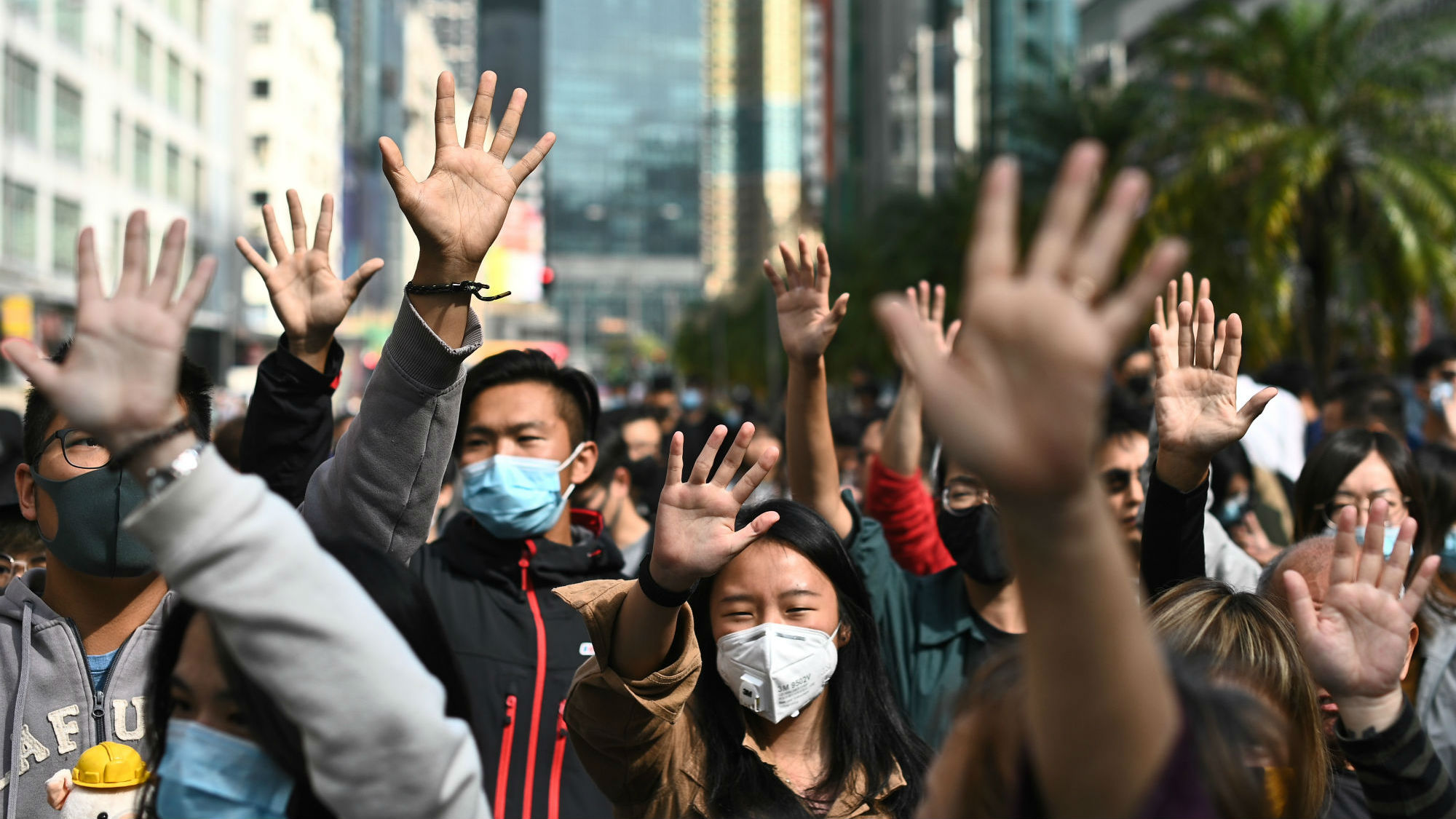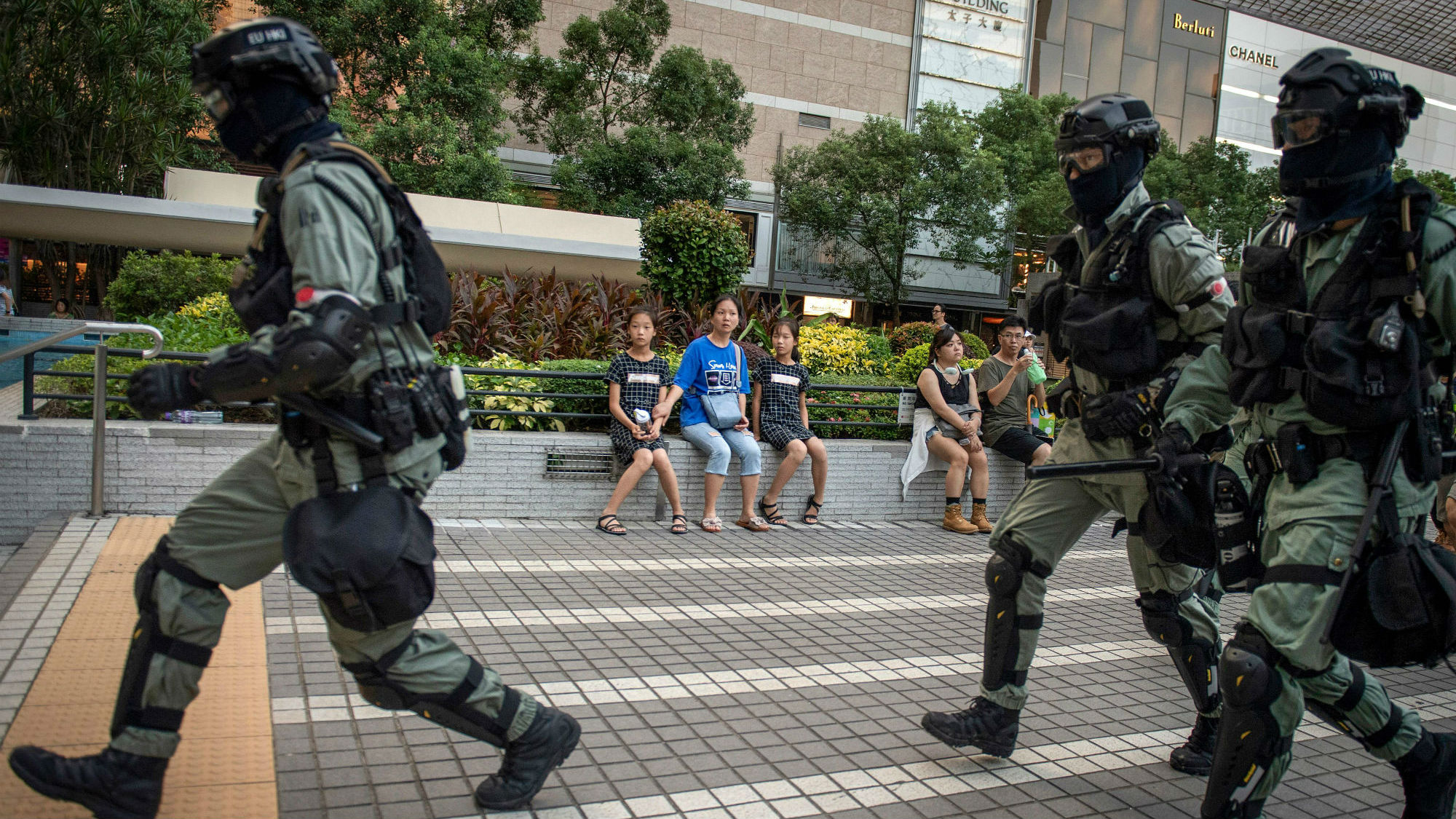Protesting for change: a Hong Kong student activist on fear versus freedom
Defending democratic rights against Chinese intervention is a priority for 20-year-old Hong Kong university student Jason* - and he will not apologise for any damage or disruption caused

Celebrity news, beauty, fashion advice, and fascinating features, delivered straight to your inbox!
You are now subscribed
Your newsletter sign-up was successful
Defending democratic rights against Chinese intervention is a priority for 20-year-old Hong Kong university student Jason* - and he will not apologise for any damage or disruption caused
My weekends used to involve hanging out with my mates and talking about anything other than politics. Now, every weekend I am on the streets, protesting to protect Hong Kong’s independent future.
I find out about the upcoming protests through a Chinese version of Facebook and a forum – similar to Reddit – that discusses timings. At the weekends we tend to go out at about 3pm or 4pm, and during the week it’s about 6am, to try and disrupt people on their commute to work.
I can’t lie; coming face-to-face with police is scary. Their faces are covered so they have no identity, and they have so much anger towards you. If they get close enough, they arrest you straight away - they don’t care if you’re a protestor or just a civilian who happens to be on the street. At first I wondered why they would arrest someone who isn’t being an activist, and then I realised it’s because they want to make you afraid to be in the area where the protest is taking place.
Obviously, it’s not ideal to get arrested, because then there are less people on the streets. To avoid it, I throw bricks at cops and run if they get too close. But I’m not their preferred target anyway. They go for easier people first, like younger students or girls.
I sometimes protest with my friends, but usually I go alone. It’s frightening but I do it because then you don’t have to look out for anyone except yourself. And you soon meet similar people to you in the crowd. I recently met an expat from the UK who was as pissed off as me about the government situation, so we walked together.
I usually wear a ski mask and keep my ears and hair hidden as well to avoid being identified. I don’t have a gas mask, so when I’ve felt tear gas on me I’ve found it hard to breathe and my eyes stung. Since that happened, I’ve worn swimming goggles under my eye mask, for extra protection. My mate has got rashes from the tear gas coming into contact with his skin so often.
Celebrity news, beauty, fashion advice, and fascinating features, delivered straight to your inbox!

At first, it felt weird vandalising other people’s property. But our damage is very specific, we only target Chinese-owned businesses. You’ll see one business being smashed to pieces and next to it another one completely untouched.
My parents are worried for my safety and fear I’ll get arrested, but they understand why I have to do this. My younger stepbrother is only eight, so he’s too young to join in. When someone gets arrested they got locked up for a maximum time of 48 hours, and then released on bail. The scary thing is what they do to you during those 48 hours. There are rumours that people have been killed or raped. I think a lot of horrible things happen inside the police station.
The police grew up in Hong Kong and they are supposed to be independent, but in my opinion they are completely brainwashed. Or they are completely selfish. If they earn a good salary they will do anything, and even beat up their own people.
I’ve lived in Hong Kong all my life, apart three years studying aboard. My mum came to Hong Kong from China when she was six and my dad was born here. My friends and I first noticed Chinese intervention in 2014, when we were forced to learn Mandarin Chinese in schools (we speak Cantonese in Hong Kong). Everyone was very pissed off. I took part in my first protest that year with my high school friends, but it was a very small-scale event.
It was in June, when a law was proposed that would allow the extradition of criminal suspects to mainland China, that I first properly protested with thousands of others. The bill has since been withdrawn, but we still have four other demands – to stop labelling protesters as ‘rioters’, to drop charges against protesters, to conduct an independent inquiry into police behaviour and to implement genuine universal suffrage for both the Legislative Council and the Chief Executive.
These demands were born out of us being scared of China taking over completely. We are currently ‘one country two systems,’ but the arrangement ends in 2047, and it is unclear what happens when it comes to our independent legal system after this date. The government has been trying to push pro-Beijing laws for years and now is the time to speak up.
I think our current Chief Executive Carrie Lam is a puppet. She gets orders from Beijing and she just does it. But we will continue to make use of the freedoms denied in China, and the landslide pro-democracy camp win in the district council elections on November 24 uses our rights in a positive way.
From the outside world looking in, I can see that the violence and disruption we are causing looks bad, but we are protesting, not rioting – it’s specific disturbance.
Is it worth the risk of being arrested and damaging my future career? I think so. If we don’t protest, nothing is going to change. This is isn’t the Hong Kong I want to live in, a Hong Kong controlled by China. Yes, it’s sad to see Hong Kong so unsettled, but I think it’s about time we stood up for what is right.
* name has been changed to conceal identity
Olivia – who rebranded as Liv a few years ago – is a freelance digital writer at Marie Claire UK. She recently swapped guaranteed sunshine and a tax-free salary in Dubai for London’s constant cloud and overpriced public transport. During her time in the Middle East, Olivia worked for international titles including Cosmopolitan, HELLO! and Grazia. She transitioned from celebrity weekly magazine new! in London, where she worked as the publication’s Fitness & Food editor. Unsurprisingly, she likes fitness and food, and also enjoys hoarding beauty products and recycling.